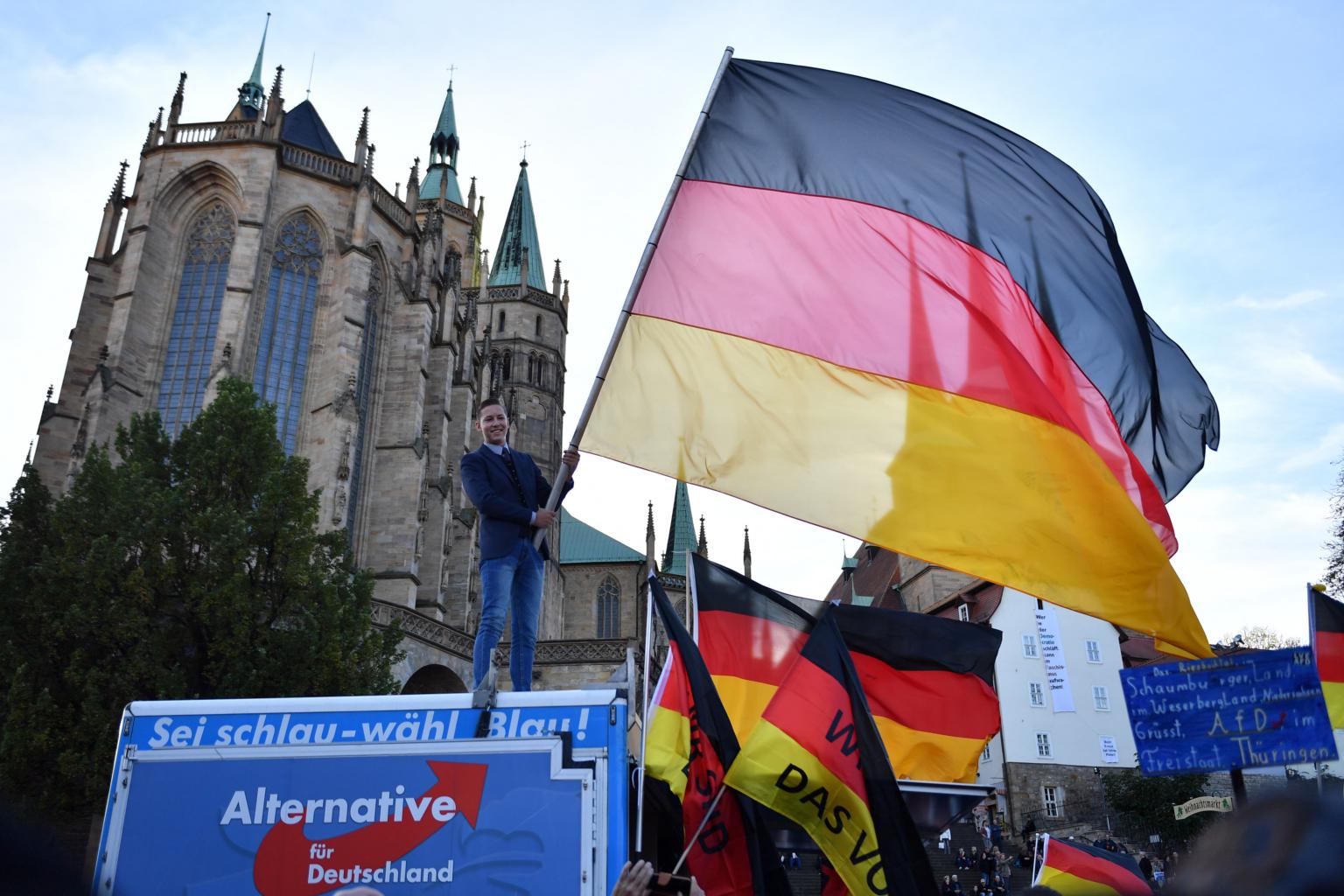Merkel's CDU party faces far-right challenge in eastern German state vote
Sign up now: Get ST's newsletters delivered to your inbox

Supporters of Alternative for Germany (AfD) Thuringia wave flags during the final election campaign of the AfD Thuringia on Oct 26, 2019.
PHOTO: DPS-ZENTRALBLID
Follow topic:
BERLIN (REUTERS) - Germans in the eastern state of Thuringia vote on Sunday (Oct 27) in an election in which the far-right Alternative for Germany (AfD) is seeking to build on successes in two other regional votes last month and to beat Chancellor Angela Merkel's conservatives.
One of a number of nationalist movements making waves across Europe, the AfD is the third largest party in Germany's legislature behind Merkel's Christian Democrats (CDU) and the centre-left Social Democrats (SPD).
After gaining seats in the national parliament for the first time in 2017, the AfD is trying to build momentum in the east. The party surged into second place in the eastern states of Saxony and Brandenburg in Sept 1 elections.
In Thuringia, polls show the AfD running neck-and-neck with Merkel's CDU, just behind the far-left Linke, which heads the ruling regional coalition with the SPD and ecologist Greens.
Before the vote, the CDU leader in Thuringia, Mike Mohring, received a death threat that ended "Heil Hitler!". Mohring said suspected neo-Nazi extremists threatened to stab him in the neck or attack one of his rallies with a car bomb if he did not stop campaigning.
"I believe we shouldn't leave any room for hate, for violence, for aggression, for death threats," he said ahead of the election.
An INSA poll published on Thursday (Oct 24) showed the AfD and CDU tied on 24 per cent, with the Linke on 28 per cent, the SPD on 9 per cent, the Greens on 8 per cent and the business-friendly Free Democrats (FDP) on 5 per cent, the threshold parties must surpass to enter the regional assembly.
Coalition building is likely to be tricky if the election result reflects those poll numbers.
The AfD in Thuringia is led by Bjoern Hoecke, an anti-immigrant former history teacher who has drawn criticism from Jewish leaders and mainstream politicians for calling Berlin's Holocaust memorial a "monument of shame" and demanding that schools highlight German suffering in World War Two.
Hoecke's ultra-right stance is tearing at party unity. His drive to pull the party further to the right has alarmed more moderate members aware that his fiercely anti-immigrant stance is unlikely to gain traction with voters in western Germany.
In July, scores of senior AfD members condemned Hoecke's rising influence. The fight for the future direction of the AfD is expected to come to a head at a party conference in December.

